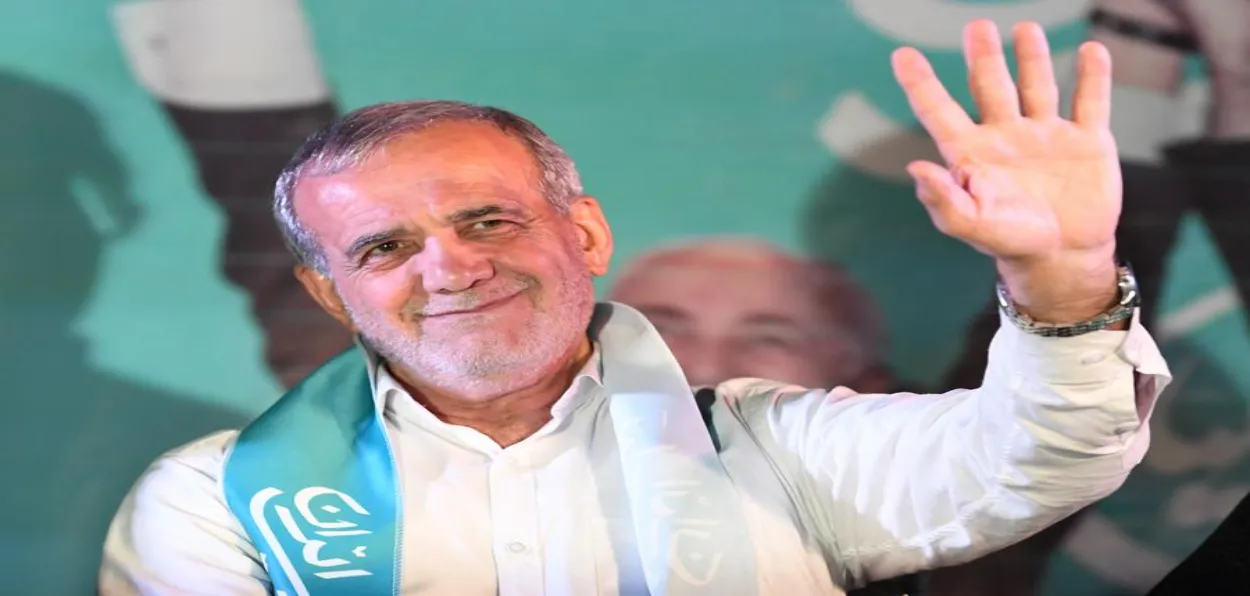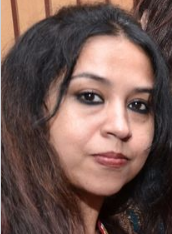
 Aditi Bhaduri
Aditi Bhaduri
He came to power in a run-off after no one candidate emerged in the initial round. And he has surprised the world. The election of ‘reformist’ Massoud Pezeshkian as President of Iran has a message and a loud one at that: The people of Iran want change and a more liberal Iran.
This is, perhaps, not surprising. The short-lived administration of the late President Ibrahim Raisi was marked by a brutal crackdown on women and civilians in what has become famously known as the ' Mahasa Amini" case after the young woman who died while in police custody for protesting against the hijab.
Her death galvanized Iranians, especially the young, across the country in protests that have rarely been witnessed there - protestors fought back against security forces, toppled patrol vans, and tore down billboards of Ayatollah Khomeini. Most surprising was that many of the protests were led by women. Hundreds of protestors were killed by Iranian security forces and many more were arrested - all under Raisi's watch.
However, even before this, Raisi had come to power as a known hardliner. He had years ago earned the moniker of the ‘butcher of Tehran’ for his alleged role in the 1988 executions of political prisoners in the country's jails.
A hardliner, he consolidated relations with the East - firming up ties with China and Russia. Under him, Iran began military cooperation with Russia and supplied it with drones for its operations in Ukraine. Iran has also resumed some activities related to its nuclear program in response to the US under then-president Donald Trump pulling out of it and re-imposing sanctions on Iran, which have been damaging its economy.
Yet, Raisi rode to power on the heels of his predecessor Hassan Rouhani, a liberal. He staked much on the Joint Comprehensive Plan of Action (JCPOA) or as it is popularly known - the Iran nuclear deal.
Iranian Foreign Minister Hossein Amirabdollahian meeting Prime Minister Narendra Modi during his visit to New Delhi
Unlike his predecessor Raisi and opponent Saeed Jalili, Pezeshkian belongs to the 'reformist' camp. A former heart surgeon, who served in the government of President Mohammad Khatami as health minister, Pezeshkian has earned the respect of many Iranians by his simple and modest lifestyle. His election, once more, points to the fact that people in Iran are for change, for a more liberal polity, for more openness, whether in communication, information, or personal freedoms. They also, perhaps in many ways want to ease relations with the West.
Pezeshkian has his task cut out for him. Constitutionally, the president is the second most powerful person in Iran. He won over his opponent Jalili, in a runoff, in which voter turnout was significantly higher. Pezeshkian promised unity and cohesion to voters. So if he can forge consensus between different institutions he can kick-start several initiatives.
Domestically, he will be expected to take a more liberal course than his predecessor. He has promised to settle the hijab policy and ensure greater freedom for women. He had also called for national unity. This would allow more individual freedom and a liberal dress code, especially for women. There may be an opening for the flow of more information, communication, and Foreign broadcasts, as well as social media. We may expect an amnesty or something similar for the scores of detainees connected to the Mahsa Amini protests.
In his foreign policy, Pezeshkian would have to chart the course laid down by his predecessor. This is because in Iran foreign policy is not the preserve of the Ministry of Foreign Affairs alone, it also often involves the Iranian Revolutionary Guards Corps (IRGC), while the ultimate decision-making authority lies with the Supreme Leader.
Iranian women protesting against death of Masha Amini and hijab
Thus we would continue to see Iran consolidating its ties with its eastern partners and its position within groupings like the Shanghai Cooperation Organisation which it joined last year, and the BRICS - which it joined this year. Its support for Shiite militias across West Asia will also continue at least for now.
With the Western world, however, Pezeshkian 's election opens up an avenue. He has promised to restart negotiations on the Iran nuclear deal, which was suspended two years ago, as well as to get the sanctions against Iran revoked. As a liberal and reformist it would be of utmost urgency to find a breakthrough with the US before the presidential elections. Iran has been holding secret talks with the US over the nuclear deal since Raisi's regime.
Pezeshkian will seek to continue with them. For this, his domestic support would be useful and a convergence of different Iranian institutions. This should be for him both a priority and the most important task. For the US too it opens up an opportunity as a potential Trump reelection may once again jeopardize negotiations.
For India, Pezeshkian's election can only be positive. India and Iran share ancient and civilizational ties, and bilateral ties have endured irrespective of whichever party or president has been in power in either country. India and Iran, still under Raisi's Presidency, signed the landmark Chabahar Port deal for a historic 10 years!
ALSO READ: All may not be well with SCO, but India needs to stay put
It showed that while US sanctions on Iran have hamstrung India's engagement with it, India has not recognized these unilateral sanctions and is determined to forge ties with the country. A reformist Pezeshkian can now only energize bilateral relations. Liberalization of society, whether in the dress code or the free flow of information, can only further enhance bilateral ties, as hardliners will be kept in check and serve as a model for India’s communities that share close cultural and religious ties with Iran. If a breakthrough with the US can be reached on Iran’s nuclear deal and sanctions lifted, then it could give an impetus and further deepen the India-Iran bilateral trade and economic relations.
The author specializes in analyzing affairs related to Russia, Central Asia and Middle-East
